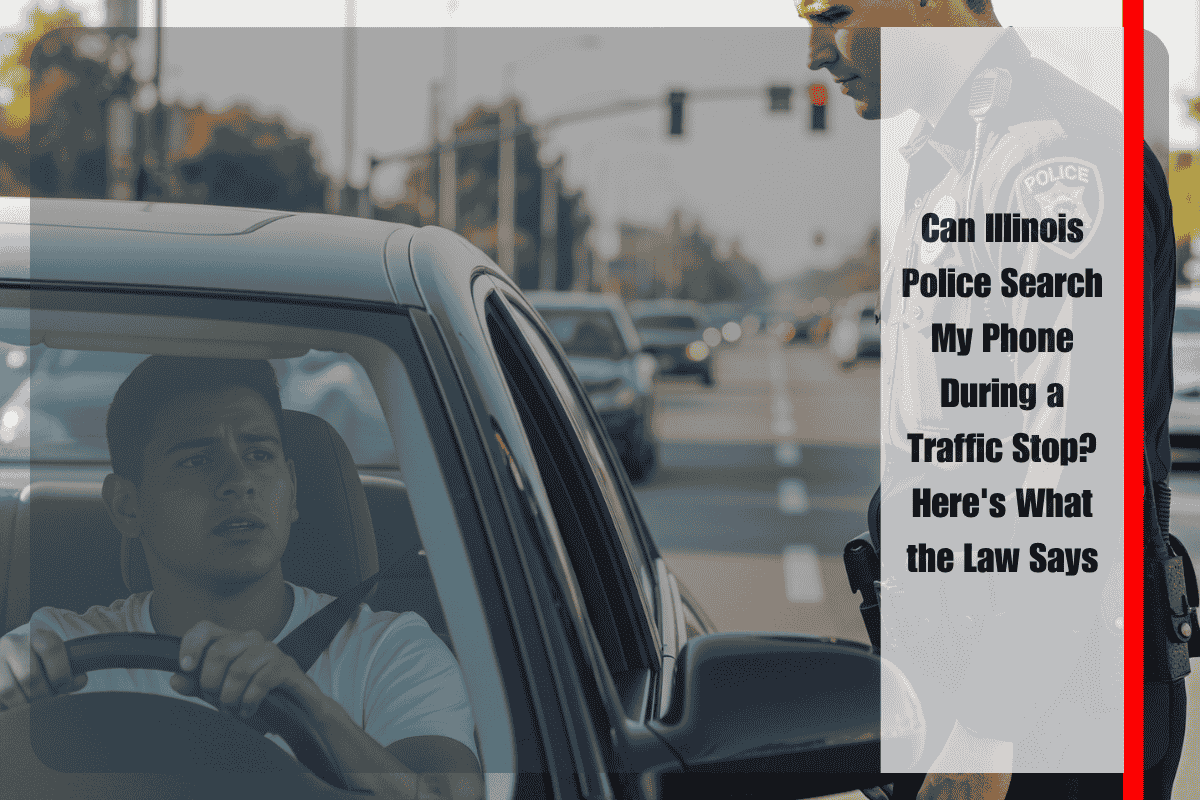Illinois police cannot generally search your cell phone during a routine traffic stop unless they have a warrant or your explicit consent. The Fourth Amendment of the United States Constitution protects you from unreasonable searches and seizures, which includes the contents of your cell phone.
Under the landmark U.S. Supreme Court case Riley v. California (2014), police officers are required to obtain a warrant before searching the digital contents of a cell phone seized incident to an arrest, even if the phone was taken during a lawful arrest. The Court recognized that cell phones contain vast amounts of personal information, making warrantless searches highly intrusive and unreasonable under the Fourth Amendment. This rule applies nationwide, including in Illinois.
There are very limited exceptions to this rule. Police may use a suspect’s cell phone in emergency situations (called “exigent circumstances”), such as when there is an imminent threat to life or the risk of destruction of evidence, but these situations are rare. Police may also seize your phone to secure it as evidence, but they cannot access its data without a warrant or your consent.
During a standard traffic stop, you are not required to hand over your phone if an officer requests it, and you have the right to refuse a search of your phone. If an officer asks to search your phone, you can politely decline. If you are arrested, police may take your phone, but they still need a warrant to search its contents unless you give consent or there is an exigent circumstance.
Illinois police cannot search your phone during a traffic stop without a warrant or your consent, in line with federal constitutional protections established by the Supreme Court. If you believe your rights have been violated, consult with an experienced attorney.
Sources
[1] https://www.diquattrolawoffices.com/blog/when-are-police-allowed-to-search-without-a-warrant-in-illinois
[2] https://hirschlawgroup.com/understanding-your-rights-during-a-police-stop-in-illinois/
[3] https://www.isba.org/ibj/2014/09/ussupremecourtsaysnocell-phonesea
[4] https://www.napervilledui.com/articles/u-s-supreme-court-protects-cell-phones-from-warrantless-searches
[5] https://epic.org/documents/riley-v-california-2/












